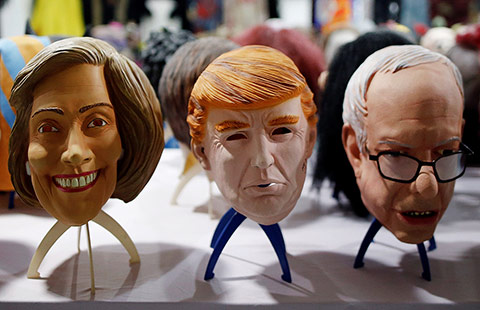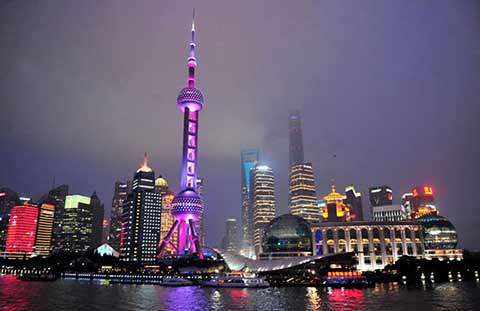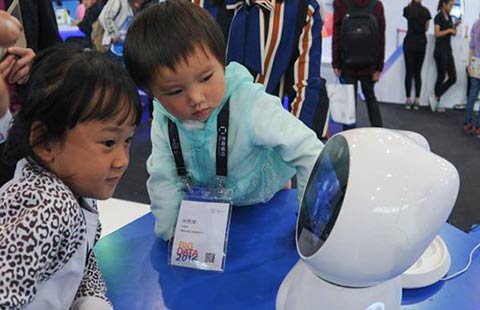Baosteel says it will brace for US legal battle
By Wang Ying (China Daily) Updated: 2016-05-30 08:23Baosteel Group, which owns Baoshan Iron and Steel Co Ltd, China's largest and most advanced integrated steel manufacturer, has said it will defend its legal rights in accordance with international regulations and laws in the case relating to United States Steel Corporation's complaint against Baosteel.
On April 26, US Steel Corp filed an application against Baosteel and other Chinese steel makers under Section 337 of the US Tariff Act of 1930, which seeks to bar import of Chinese carbon and alloy steel products.
US Steel Corp alleged that 40 Chinese companies, including Baoshan, have exported steel products to the US in violation of Section 337. It also alleged a conspiracy by the Chinese steel companies to control prices, misappropriation of trade secrets and mis-stating the origin of products, which the US International Trade Commission launched an investigation into the case last Thursday.
Baosteel denied the allegations that it called groundless and said its operations are market-oriented and completely legal. It underlined its independent research and development efforts, and accused US Steel Corp of disrespecting and vilifying it and its R&D staff.
According to Zhang Xiaoli, a senior analyst with industrial information provider MySteel.com, it is easy to understand why steel products from China are priced lower than those made in other countries. Chinese steel makers have greater production capability and enjoy lower labor cost, she said.
So, the cost of production is relatively lower. But, this also creates serious problems like oversupply and fierce competition.
"Chinese steel companies manufactured 1.1 billion tons of steel products throughout 2015. About 112 million tons of steel products were exported, including 2.4 million tons to the US. Exports to the US in 2015 were down from 3.5 million tons in 2014," said Zhang.
Zhang Tieshan, another analyst with MySteel.com, said the pricing of Baosteel products is open and transparent. The fact that Baosteel manufactures half of the nation's auto sheets means that the Shanghai-based company has a say in pricing. This cannot be labelled price-fixing, he said.
"Just like the three key iron ore miners have a say in determining the iron ore price, so does Baosteel have a say in steel prices. When they jointly raised the iron ore price by up to 70 percent on an annual basis in the past, there was no accusation of price-fixing by Chinese steel makers as they understood output influences pricing," said Zhang Tieshan.
"In the past three decades, Baosteel made efforts and progress in independent research and development, which resulted in steel products of high standards," said Wang Guoqing, research director at the Beijing Lange Steel Information Research Center.
"As a State-owned company with good reputation internationally, all the products of Baosteel are standardized according to their origin, so the complaint of mis-stating the origin of products is ridiculous," said Xu Xiangchun, an analyst with Shanghai Ganglian Holdings.
Analysts said the US Steel Corp's application for investigation into Baosteel and others appears to be part of a well-entrenched practice among US companies to seek trade protection indirectly.
"Such investigations take a long time to finish, and while they are on, trading in the steel products concerned will likely be affected," said Zhang Xiaoli.
He said US Steel Corp's move may set a wrong precedent for other companies in the US and elsewhere.
Wang said Chinese steel makers would do well to respond actively to the current complaint in accordance with international practices and benefit from expert opinion.
"The bright side of this story is that major Chinese steel makers such as Baosteel have gained experience in dealing with such cases, and it has set a healthy precedent for Chinese steel makers on how to defend their interests in overseas markets," said Zhang Tieshan.
Baosteel said on its website that in March 2011, it won an anti-dumping case in the US involving import of drill pipes to the country.
- Wuhan Iron says it's clean, denies charges of wrong-doing
- European economists urge go-slow on EU's anti-dumping steps
- Opinion divided over new tax regulations for cross-border e-commerce
- Focus of Shanghai-HK connect shifts to Q3-Q4
- In e-commerce rush, some companies are getting burnt
- Fendi Timepieces CEO bullish on China's luxury market
- Still in the furnace but escaping meltdown
- Top 10 Chinese cities with 'internet plus tourism'
















